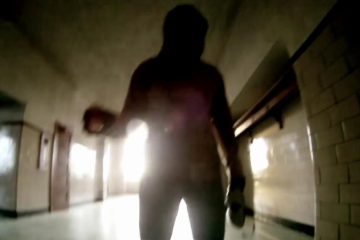Iranian-American poet and writer Kaveh Akbar’s novel Martyr! came out in January 2024 and upon its release, it almost immediately became a best seller, for good reasons. The book explores the main character’s struggles with addiction, with his multicultural identity as a second generation immigrant and with his grief after losing both of his parents. This novel, which also contains some of Akbar’s renowned poetry, is so appreciated mainly because of its emotional appeal. In this book, the character’s emotions arguably matter more than the storyline and it is a sort of psychological exploration of its characters.
While the point of view is sometimes changing, this book mainly revolves around Cyrus Shams, an American-Iranian wannabe poet who quits his job after having an emotional breakdown in front of a client. He then tries to dedicate himself fully to poetry, but he finds himself incapable of writing, until he has a revelation and decides to write a novel exploring the theme of martyrdom. While he wants to talk about the classic martyrs of history, he also wants to explore the history of some of his family members, like his dead parents and his uncle, and how they can also be considered martyrs. While researching the topic, he stumbles across the art exhibit of Orkideh, an Iranian woman who decided to spend her last days of life talking to anyone who wishes to do so. Cyrus travels to meet her at the museum, and has some meaningful discussions with her about identity, suffering, death and martyrdom. Simultaneously, he discovers one of Orkideh’s paintings which closely resembles a period of his uncle’s life, which sparks important questions about his family history.
Cyrus is a deeply flawed main character, but he is so in a way that feels incredibly human. The book begins with a scene in which we see him a few years before the events of the book, when he is in a deep depressive state and at the peak of his addiction. This brave decision to start a book with a scene depicting its main character in a very vulnerable and imperfect state already lets the reader know that Cyrus is going to be a character whose actions are not always understandable. Indeed, as we can later see, Cyrus’ actions are always influenced by his fragile mental state, and that makes the reader have empathy for him. The book then provides explanations as to why he has ended up in such a state; we see how his tragic past has affected him in different ways. In particular, his battle with substance abuse is written about in a deeply realistic way; while we see that he has been getting better for a few years, he still spends a lot of his time being tempted to go back, because getting through his emotions feels incredibly more difficult than just getting numb like he used to do all the time. While readers might have not battled themselves with addiction, it is described in such a way that is very easily understandable and relatable.
Another element which contributed largely to the state he is in is obviously the loss of both of his parents. While his mother died in a plane accident when he was only a baby—so he does not have any concrete memory of her—he still wonders about what she was like and what his life could have been like if she had been there for him. Then, his father dies when he is a teenager, which makes his mental state even worse and is ultimately what makes him fall even more into drugs and alcohol. Throughout the book, he tries to learn how to better deal with his grief, but of course it is no easy task and he feels very alienated from the world as a young adult with no parental figure to rely on.
The death of both of his parents also worsens his struggle with his cultural identity. His mother’s plane was struck down by Americans, and his father, having emigrated to the United States, died after being overworked. Cyrus thus believes that both of his parents were killed by the United States, so he has some resentment against the country. However, since he has lived pretty much all his life in the United States, he feels like he cannot really call himself fully Iranian; he then has to live forever as an Iranian-American, he has to live with being described using the country he resents. All of these are thus factors as to why Cyrus ends up in the position that he is in at the beginning of the book, and getting to understand him like this makes the reader feel close to him, to the point where his bad decisions feel more like natural consequences than a major character flaw.
In conclusion, I would recommend this book to anyone who wants an immersive story about a deeply human character with enriching experiences. It certainly made me very emotional because by the end, I cared a lot for Cyrus and his relatives. I also thought that Akbar’s poetry was gorgeous and I even would have appreciated more poetry intermissions, even though I am not someone who usually does not read a lot of poetry. Definitely give this book a chance if that seems interesting to you!




